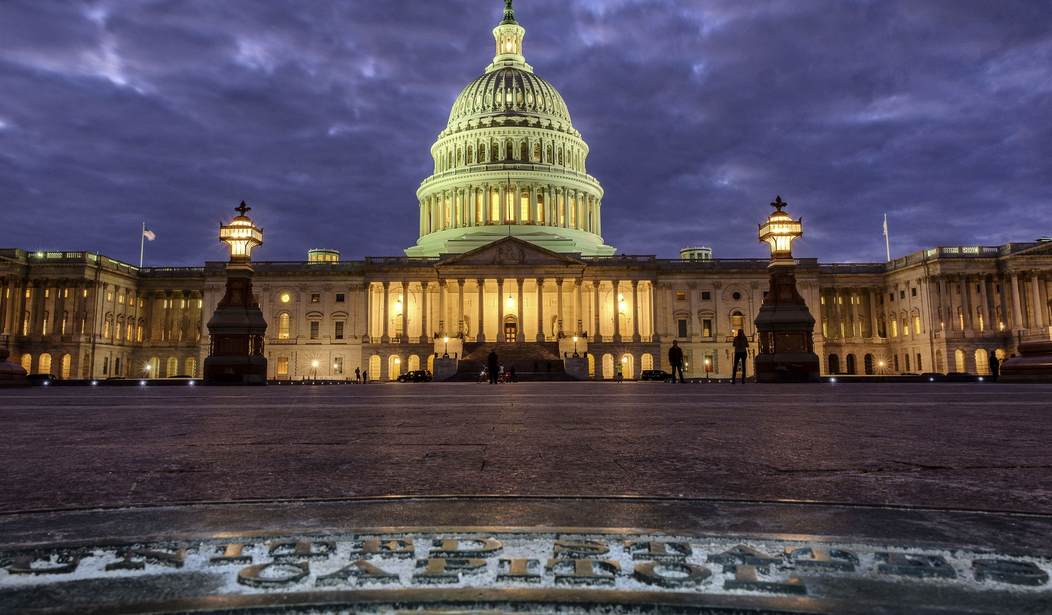Reality: The more a family borrows and spends, the deeper in debt they fall.
Also a reality: The more the federal government borrows and spends, the more annual deficits increase and continue to push the national debt higher and higher. Another reality: The U.S. annual deficit is nearing $2 trillion for this fiscal year, almost double the record deficits before the COVID-19 pandemic, as federal borrowing hits more than $5 billion per day. Even worse, there's no end in sight.
The U.S. Congressional Budget Office reported that the federal deficit hit an estimated $1.8 trillion in fiscal year 2024, $139 billion higher than the deficit from the previous fiscal year. The troubling yet hardly surprising deficit news comes as the national debt continues to soar, drawing close to $36 trillion.
So here's a touchy but necessary question: Does either party really care? I mean, care enough to do something about it? I have my doubts. (We'll get there.)
Maya MacGuineas, president of the Committee for a Responsible Federal Budget, said in a statement on Tuesday (emphasis, mine):
In 2025, lawmakers will face new hurdles. Not only rising deficits, debt and interest, but also the reinstatement of the debt ceiling, the end of the Fiscal Responsibility Act’s budget caps, and major tax and spending expirations. Within the next dozen years, three major trust funds – for highways, Medicare, and Social Security – will run out of a reserves, forcing us to reckon with even tougher decisions on how to keep important government priorities afloat.
These hurdles will present a test for policymakers, requiring them to either offset their desired outcomes with real budgetary savings or pass the bill on to the next generation.
We cannot afford to continue to borrow at this rate indefinitely. It is long past time that policymakers stop adding to our growing national debt and instead agree on a path forward that puts the debt on a downward, sustainable path for future generations.
Yet both parties continue to kick the can down the road, as Democrats continue to propose more and more spending, while the Republican Party often folds up like a cheap lawn chair, compromising on ever-more-costly legislation.
It's Not About Increasing Taxes. It's About Reducing Spending.
Much to the Democrat Party's chagrin (as if they cared), it's not about increasing taxes on the evil rich and the devilish corporations who don't pay their "fair share," which the CBO report clearly shows -- it's about reducing spending.
- Individual income and payroll taxes together rose by $343 billion (or 9 percent).
- Amounts withheld from workers’ paychecks rose by $156 billion (or 5 percent),reflecting increases in wages and salaries.
- Non-withheld payments of income and payroll taxes rose by $111 billion (or 12 percent).That increase includes the effects of delayed payments from taxpayers in areas affected by natural disasters for whom, beginning in February 2023, the Internal Revenue Service (IRS) postponed some 2023 filing deadlines. Most of those payments were due byNovember 2023.
- Individual income tax refunds declined by $77 billion (or 21 percent), in part because of amoratorium placed on new claims for the Employee Retention Tax Credit, which increased individual income tax refunds in 2023. The IRS announced the moratorium inSeptember 2023.
- Receipts from corporate income taxes increased, on net, by $109 billion (or 26 percent).
As I wrote this article, I was reminded of a salient quote from the late British Prime Minister Margaret Thatcher.
The problem with socialism is that you eventually run out of other people's money.
That reality falls on deaf ears in the Democrat Party, while Republicans generally talk tough but ultimately give in far more than their tough talk suggests they will.
The Bottom Line
Regardless of whether Donald Trump or Kamala Harris wins in November, the next president is going to face hard fiscal choices, politics aside. While Harris continues to propose increasing taxes on corporations and high-income households, Trump talks about imposing new tariffs, tax cuts, and eliminating fraudulent spending.
Meanwhile, the out-of-control band plays on.














Join the conversation as a VIP Member